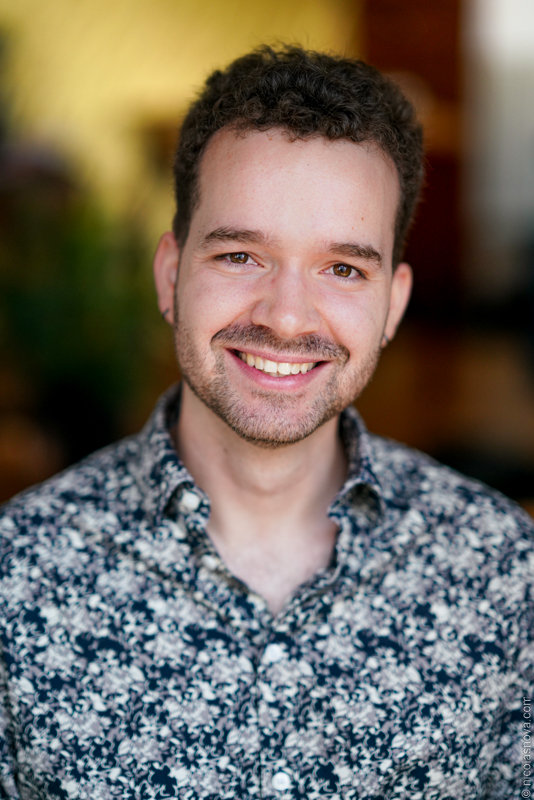You are here :
- EUTOPIA website
- Home
- Research & Innovation
- Fellowship
- SIF - Post-Doctoral Fellowships
SIF 2nd Cohort Fellows - Théo Aiolfi, CY Cergy Paris University

Curriculum Vitae
-
Education
PhD, University of Warwick (UK), 2022, Politics and International Studies
MSc, University College London (UK), 2015, Global Governance and Ethics
BA, University of Geneva (Switzerland), 2013, International Relations
-
Experience
2021-2022, Early Career Teaching and Research Fellow, Institute for Advanced Teaching and Learning (IATL) and Institute of Advanced Study (IAS), University of Warwick (UK).
The ECTF enables the fellow to advance the development of their teaching and research experience by, on the one hand, designing original pedagogic activities and teaching interdisciplinary modules and, on the other hand, writing research publications, conference papers, job applications, and postdoctoral fellowship/grant proposals.
2017-2021, Graduate Teaching Assistant and Seminar Tutor, University of Warwick (UK).
This flexible position provides the opportunity for a PhD candidate to develop their teaching skills by engaging with various academic fields and students of undergraduate and postgraduate levels. Throughout my time at Warwick, I taught multiple modules and gave guest lectures for the departments of Politics and International Studies (PAIS), of Theatre and Performance Studies (TPS) and for the Warwick Business School (WBS).
-
Publications
Aiolfi, T. (2022). “Populism as a Transgressive Style”. Global Studies Quarterly, 2(1), ksac006, https://doi.org/10.1093/isagsq/ksac006.
Aiolfi, T. (2022). “Leaving the Script Behind”. Theatre, Dance and Performance Training, 13(3), https://doi.org/10.1080/19443927.2022.2102739.
Aiolfi, T. (2019). “Migration and Populism: Marine Le Pen as a Performer of Urgency”, in Rosina, M. & S. Talani [Eds.], Tidal Waves: The Political Economy of Migration and Populism in Europe. Oxford: Peter Lang. pp.115-150.
Aiolfi, T. (2015). “Is poststructuralism just another version of constructivism? Reconsidering the way constructivism is taught in IR Theory”. International Public Policy Review (IPPR). 9(2), pp.64-73.
-
Social media presence/Research achievements
https://orcid.org/0000-0002-6146-1332
https://twitter.com/TheoAiolfi
https://scholar.google.com/citations?user=P1KH9icAAAAJ&hl
https://www.researchgate.net/profile/Theo-Aiolfi
Honourable Mention Award at the 2021 Doctoral Research Awards
Runner-up for the 2021 Warwick 3-Minute-Thesis (3MT) competition: https://www.youtube.com/watch?v=v2IClFU2Yug
Research Project:
Performers of the Climate Crisis: Eco-populism and Political Representation in the Anthropocene
Because of its global threat for life, the climate crisis is undoubtedly the most important challenge ever faced by humankind. Described as the Anthropocene, the first epoch driven by the collective impact of a single species, the consequences of human activity on the planet have become increasingly alarming and irrefutable, backed by a unanimous scientific consensus.
Yet, despite the extreme salience of these changes, the inaction and apathy of political leaders across the world has led a myriad of political actors to take it upon themselves to make their fellow citizens aware of the gravity of the crisis and to foster radical change. Put differently, they have become symbolic performers of the climate crisis. Developing their own crisis narratives to mobilise their fellow citizens and highlight the passivity of the current elite representing them, these political actors have developed new forms of politics beyond ordinary politics.
This interdisciplinary project explores two types of such actors: activists and elected politicians, examining the circulation of discourse and practices across intersectoral and international boundaries. Through a comparative analysis of various Western countries – including France, Sweden, the United Kingdom, Belgium and the United States – this project at the crossroads of politics and performance studies engages with the political and theatrical repertoire of these actors. It does so through the lens of populism, understood as a political style, to consider the innovative way these actors combine left-wing radicalism, environmental politics, and feminism to articulate a global people united against an unresponsive elite.
Next step in his career:
Upon completion of the EUTOPIA SIF postdoctoral fellowship, Théo Aiolfi has joined in September 2024 the University of Burgundy as junior professor at the interlanguage centre "Text, Image, Language". As part of a tenure-track contract of "chaire professeur junior" on identitarian discourses and diversity in the public space, he will further develop his research interests in populism, style, performances of identity and particularly performances of 'the people' in the context of far-right politics. In January 2025, his first monograph entitled "The Populist Style: Trump, Le Pen and Performances of the Far Right" will be published at the Edinburgh University Press. Multiple articles based on the findings of the project "Performers of the Climate Crisis" will soon be published in various academic journals, in both English and French. He will continue his collaboration with the Echo research group on media, culture and politics of the Vrije Universiteit Brussels where he remains an associated researcher.


